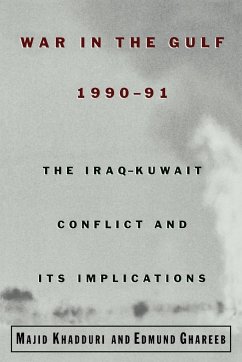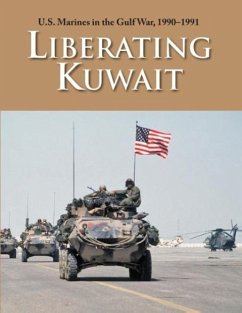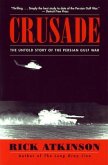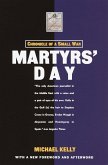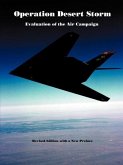For most Americans, the war against Iraq lingers in memory as a vast morality play, a drama offering ready made heroes and villains: a glowering dictator in military uniform, hapless Kuwaiti refugees with tales of persecution, plucky pilots with high-tech wizardry, and a defiant American president, ringing Churchillian as he drew a line in the sand. But this characterization of the war is greatly oversimplified, a one-dimensional portrait, lacking in context and nuance. In War in the Gulf, 1990 91, eminent scholars Majid Khadduri and Edmund Ghareeb paint a very different picture, one that brings historical depth to the portrait, and displays the actions of many of the participants in a new and revealing light. Khadduri and Ghareeb offer a far more accurate and complex portrait of the Iraq-Kuwait conflict, providing a wealth of background information not readily available before. They made a distinction between the differences between Iraq and Kuwait over frontiers, territory, and sovereignty and the method pursued by Iraqi leaders to resolve those differences. They explore, for instance, the history of relations between Iraq and Kuwait, revealing that Kuwait had once been a part of Basra (in southern Iraq) during the Ottoman rule, and only became a separate country while under British control (it was the British in fact who drew the much-disputed boundary line between Iraq and Kuwait). Khadduri and Ghareeb describe the many decades of struggle to resolve the boundary issue, examining the repeated attempts by other Arab states to mediate according to Islamic traditions of consultation and peaceful resolution within the faith. The authors also show how Saddam Husayn'swar with Iran exacerbated the boundary tensions. Because of the decade-long war, Iraq badly needed oil revenue to repay wartime loans and to rebuild, but Kuwait persisted in pumping far beyond its OPEC quota, driving down prices, and costing Iraq billions of dollars of r
Hinweis: Dieser Artikel kann nur an eine deutsche Lieferadresse ausgeliefert werden.
Hinweis: Dieser Artikel kann nur an eine deutsche Lieferadresse ausgeliefert werden.
